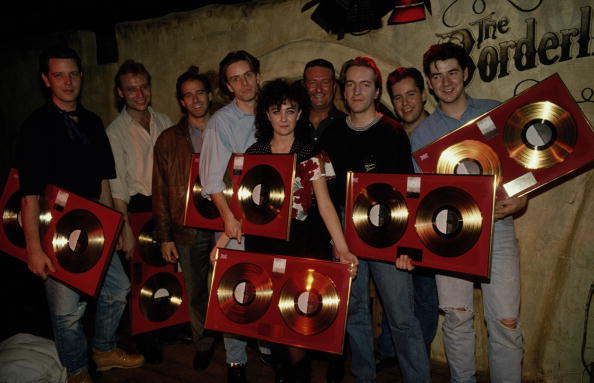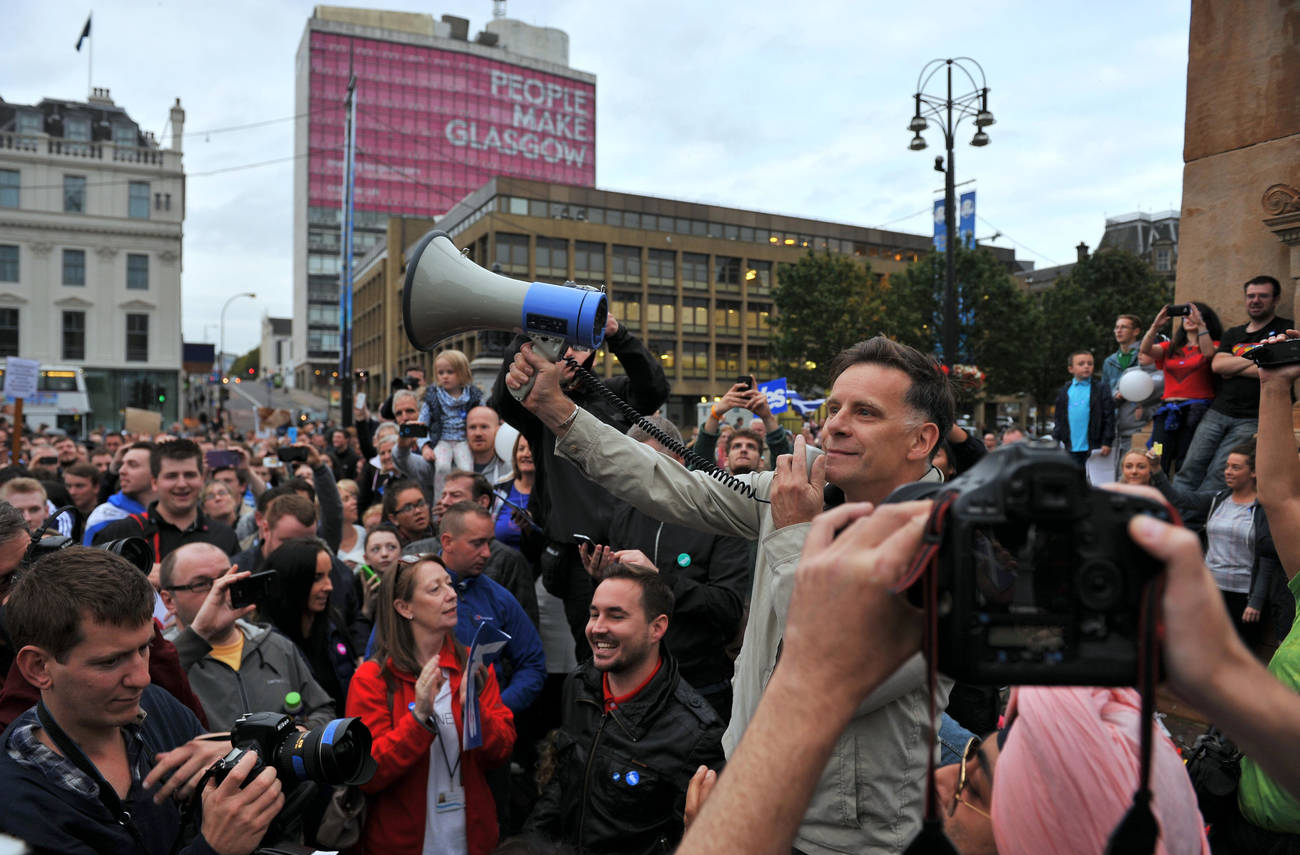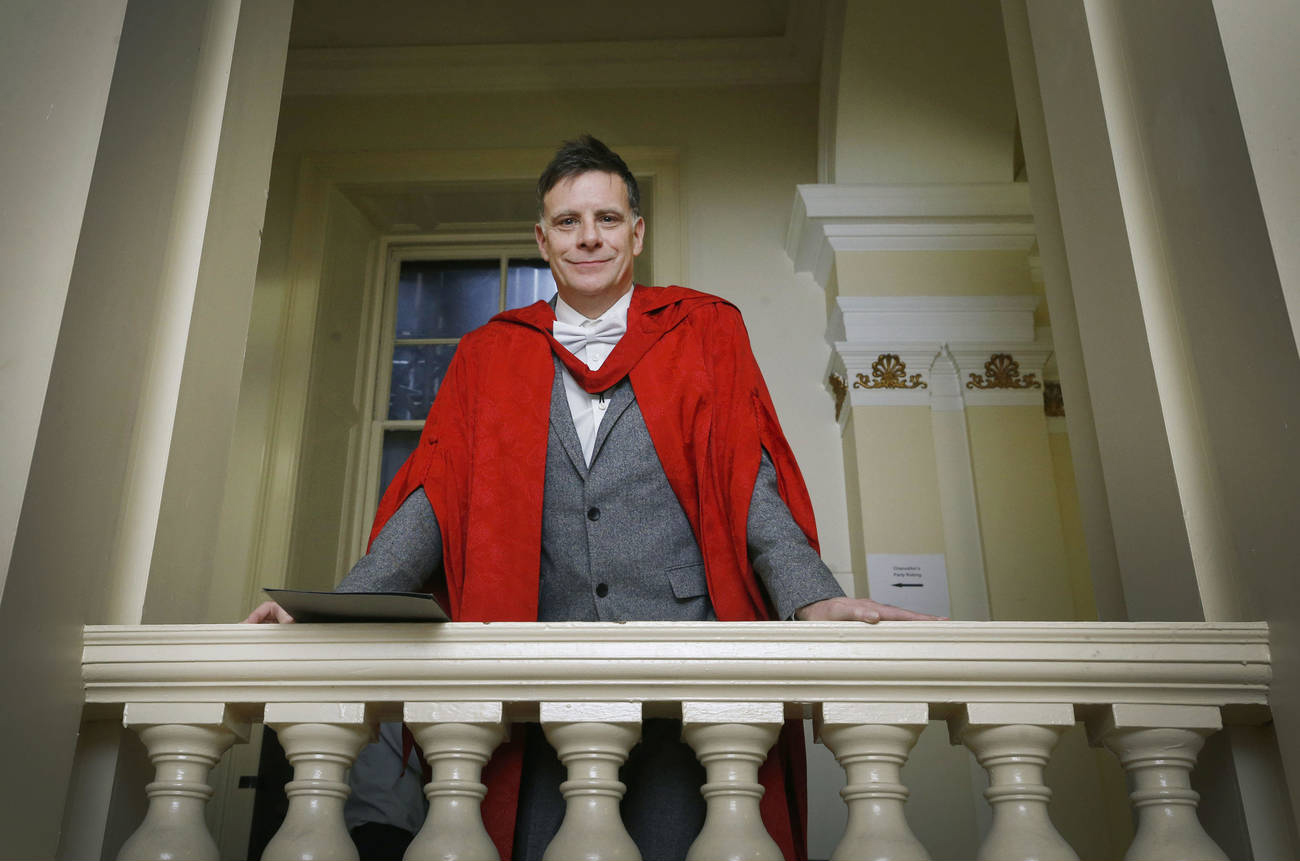Rock band Deacon Blue released their 11th studio album in February this year. Their lead singer, Ricky Ross, released his first solo album So Long Ago in 1984.
In his Letter To My Younger Self, the Scottish singer-songwriter considers the part that religion has played in his life and how much he misses each of his parents.
At 16 I was still very much in the evangelical church world that my parents had brought me up in. Rock’n’roll was increasingly dominating my thoughts. I didn’t do well at school, and I didn’t enjoy it. I had no idea what ‘my thing’ was going to be – at school my thing was just looking out of windows and dreaming. My classroom was very high up so I could see the whole of Fife. So I spent my time drawing things on the back of my jotters and looking out at Fife and dreaming about when I could leave school. I think that thing about constantly dreaming – that’s why you become a songwriter. Because you dream up stories. It was of no use to me at the time, but eventually it came in quite handy.
If you met my teenage self now you’d probably think I was a pain in the arse. I just look back and think, I didn’t know anything. I thought I knew things but I didn’t. To be honest, I have no idea who that person was. Other than just a muddle of thoughts and ideas.
I fell into teaching for a stupid reason; I wanted to grow my hair. That was my only motivation in life, I wanted to look like Neil Young. And at commercial college I had to cut my hair. Then I was talking to this teacher and they said I could study to be a primary school teacher. I thought, OK, that sounds alright. Then my mum said, you know you could get a degree and teach secondary school. And I suddenly pulled myself together. I thought, I know I’m not stupid. I’m not going to love being a primary school teacher, but I like kids. So I should probably get a teaching degree.

I look back with real affection to being part of the evangelical church. It was a lovely, lovely warm community of people, and it was our whole life; it completely absorbed everything we did. There was nothing harmful in it, no abuse or anything. And it wasn’t really, really, really strict – we didn’t play football on Sundays, I had to get dressed for church, those kind of things – but it wasn’t horrible, there wasn’t any sort of nastiness or cruelty that some religions have. But equally, it was weird. You’d go to school on Monday and everyone was talking about The Golden Shot on TV and I didn’t know what they were talking about ’cause it was on a Sunday and we weren’t allowed to watch! So there was definitely a feeling of being slightly outside the world but quite comfortable in your own world, that duality of existence.











